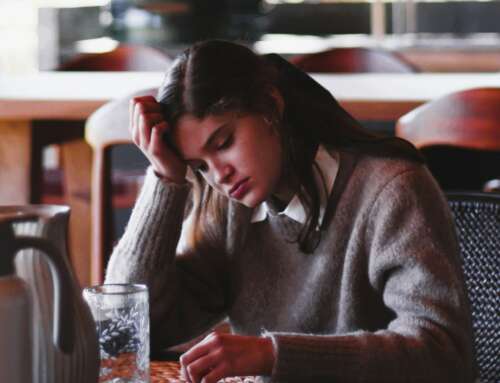Doctors are warning about the risks of relying on smartphone mindfulness apps, offering meditation and breathing exercises, for your mental health.
The apps have become some of the most popular downloads, offering everything from improved creativity to pain relief.
But Dr Quinn Grundy, a postdoctoral researcher with the University of Sydney’s Charles Perkins Centre, has been investigating some of the apps that are among the most popular of their kind.
“We noticed that apps are promising consumers quick, easy, effortless and often instant solutions, to what they’re framing as their health issues,” she said.
“So we’d see things like, ‘in just ten minutes you’ll sleep better’, or ‘just listen, the app will do the rest and your anxiety will be gone’, or ‘track your mood everyday and your symptoms will improve’.”
And she said that such quick-fix pledges could be damaging to those seeking help.
“If your app has promised that you’ll get better really easily and really quickly and you don’t, consumers shouldn’t feel like there’s something wrong with them,” Dr Grundy said.
“Or that their mental health can’t be treated.”
‘More regulation needed across the board’
Many of the apps offer a small amount of their content for free, after that users are asked to subscribe, or pay an upfront fee to access further content.
While that business structure has become common to many types of apps, Dr Grundy said those downloading mental health apps were already vulnerable.
“We would argue that mental health consumers are perhaps in a more vulnerable position to things like targeted advertising, or in-app purchases or a subscription model,” she said.
“So for example we saw apps that would be about anxiety or depression, but at the bottom you have these banner ads advertising weight loss products.”
‘App ended up increasing my anxiety’
One PHD student said she started using a mindfulness app last year to help her with some “bouts of anxiety and pretty poor response to stress”.
“So I decided to download one of these mental health apps,” she said.
The app she chose was one that was highly-rated in the app store, however it soon began increasing her anxiety.
– Angus Randall
Read More: Mental health: Doctor issues warning over mindfulness apps offering ‘quick fix’







The emergence of Mindfulness reminds me in so many ways a programme called Sylvia Mind Control. As much as they would deny the similarities, it is worth checking out the origins and the people behind Mindfulness before they started on this. While a physical injury can be dealt with in many ways and the consequences of each choice is more often than not, clearly understood before the choice is made, the mental health is a totally different things and people, including those espousing this cannot in all certainty say how every individual will react to different situations ans stimuli because that would depend on the physical, mental, emotional ans spiritual well being of that individual, and as we know, no two human beings are the same.
Hence, in Mindfulness, one enters unchartered waters within oneself and unconsciously expose oneself to the intangible risks of doing something completely contraryw to the expected outcomes from embarking into this “adventure” or “misadventure” called Mindfulness. What irks me about it is the fact that they associate it with meditation. This is the biggest fallacy simply because meditation is the emptying of thoughts and therefore free from the risks of mental suggestions or control. As a practitioner of meditation over the last 30 years, and having been to a Mindfulness session, I can say with confidence that Mindfulness is more a corporate tool than a self discovery instrument to better holistic well-being. So, what is important to know is – what are you looking for? Success can be measured in diffetent ways but is the risk worth taking and what are the risks really? While all the supposedly great things are dangled before an innocent seeker, nothing is even mentioned of the risks.
Hence, before we all embark on this Mindfulness trip, I think we have to be mindful of its risk as well.